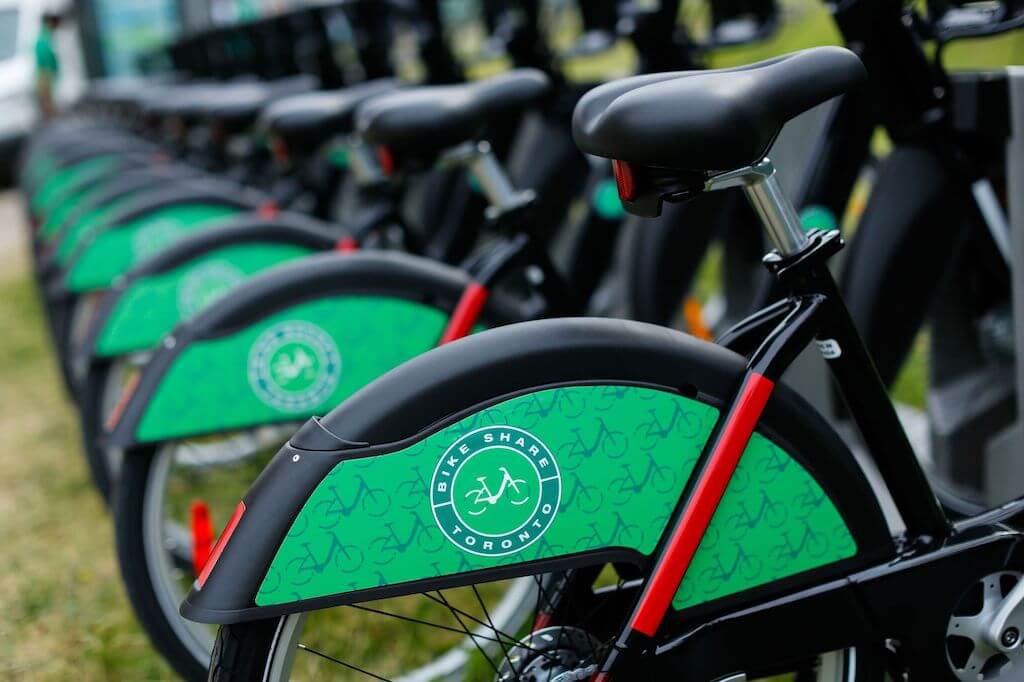Autumn Gear Guide
Find inspiration in our Gear Guide that will keep you out on your bike through wind or rain.
Download NowCars are a problem. They are a problem and we are finding out that there are plenty of solutions. One that is showing serious benefits is shared transportation: bike share, car share, shared e-scooters (gasp). And, it isn’t just that using shared transportation helps with congestion. According to a new report, it would have monumental […]
Cars are a problem. They are a problem and we are finding out that there are plenty of solutions. One that is showing serious benefits is shared transportation: bike share, car share, shared e-scooters (gasp). And, it isn’t just that using shared transportation helps with congestion. According to a new report, it would have monumental benefits in the climate crisis battle.
New findings from UK transport charity CoMoUK lays out the serious impact that small change could have: replacing short car trips with cycling could cut over a million tonnes of greenhouse gas emissions in England and Wales every single year.
But, obviously, this is a global issue. It’s the same story in North America. In cities across Canada and the U.S., a large number of car trips are under 5 kilometers. It’s a distance that’s not just bikeable but, with a bit of infrastructure and encouragement, it is easy.
A study for the Bureau of Transportation Statistics, using anonymized mobile device data, reveals that in 2021, 52% of all trips in the U.S. were under three miles, 28% were under one mile, and only 2% exceeded 50 miles.
The CoMoUK report highlights shared transport—bike share programs and car-share—as a practical way to shift habits and rethink cities. It’s not some far-off theory, either. Montreal has shown what’s possible. Its bike share system, BIXI, has become a core part of city life since launching in 2009. Montrealers take millions of rides each year proving how seamlessly cycling can replace driving when people have the right tools.
Toronto, too, is catching on. Toronto Bike Share set a record last summer with 30,442 trips in a single day.

Even car-centric cities such as New York are getting in on the fun with Citi Bike logging major rides.
Why does this matter? Because transportation is one of the biggest sources of greenhouse gas emissions. In the UK, it accounts for 28% of the country’s total emissions—more than any other sector. And North America’s numbers are even worse. It’s a problem that isn’t going to fix itself.
The good news? Replacing short car trips is one of the easiest and most effective ways to make a difference. But it takes more than good intentions. Montreal and New York haven’t succeeded by accident—they’ve invested in the infrastructure that makes cycling practical. Protected bike lanes make riders feel safe. E-bikes make longer distances or steep hills manageable. Shared bike systems ensure there’s always a bike nearby when you need one.
More needs to be done in terms of bicycle parking that is safe and secure near transportation hubs like many of Europe’s most bicycle-friendly cities. That’s next.
That’s where cities in the UK—and across North America—still have room to grow. The CoMoUK report isn’t claiming that this shift is already happening; it’s highlighting the potential. Cities like Toronto and Montreal have already shown that bike share systems work, but the real opportunity lies in scaling those successes.
And if more people swap the car for a bike—even just for short trips—the benefits will add up fast. Cleaner air. Quieter streets. Healthier people. Better cities.
It’s not about ditching cars entirely—it’s about rethinking when we really need them.
Find inspiration in our Gear Guide that will keep you out on your bike through wind or rain.
Download Now
Leave a comment